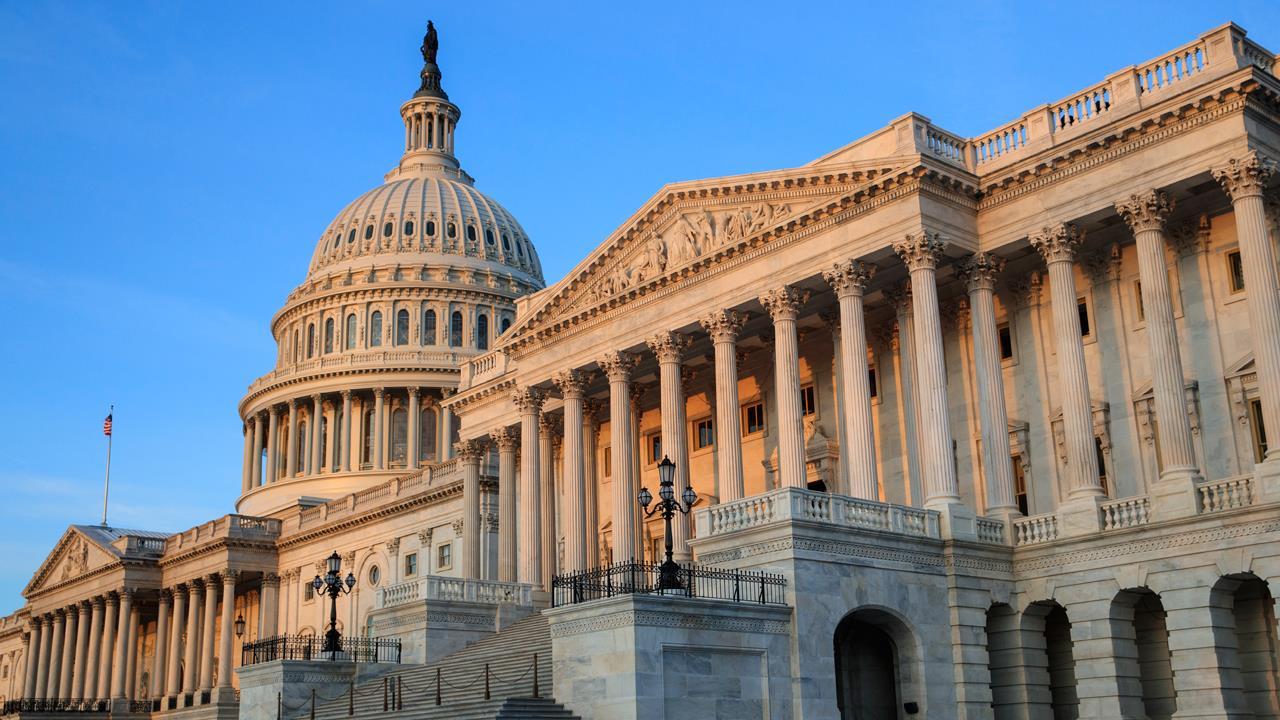8 key battles in the spending bill fight
Government funding expires March 23, giving Congress less than two weeks to finish spending bills for the current fiscal year. A budget deal passed in February set overall funding levels. But that doesn't mean the spending fights are over. Lawmakers are now haggling over how that money gets divvied up among government agencies. Here are the main sticking points: Gateway Tunnel Funding Last September, the House approved a spending bill that included roughly $900 million to help fund a new rail tunnel between New Jersey and New York City, which is seen as vital to the economic future of the Northeast. The House defeated an amendment to specifically strip out funds for the Gateway tunnel project. But President Donald Trump is opposed to having the federal government pay for half of the proposed $12.7 billion project, as local officials want. He has indicated to lawmakers that he wouldn't sign a bill that includes the Gateway funds, although it's unclear how firm that stance is, according to a congressional GOP aide. Given that some senior lawmakers on the House Appropriations Committee represent New York and New Jersey, this fight could intensify. Some aides see Mr. Trump's stance as an effort to get leverage in other debates with Senate Minority Leader Chuck Schumer, a fellow New Yorker. Aluminum and Steel Tariffs Republican lawmakers are also weighing whether to use the power of the purse to block Mr. Trump's aluminum and steel tariffs from taking hold. Cutting funds to enforce rules and regulations that lawmakers oppose is a common tactic on Capitol Hill, but it is rare for the majority to use the strategy against a president of their own party. The tariffs have put Republicans into an uncomfortable position because Mr. Trump has power to impose tariffs without congressional approval. Immigration Because Congress hasn't passed legislation extending an Obama-era program shielding young undocumented immigrants from deportation, lawmakers said they hoped to include a short-term patch in the spending bill. But Republicans want a short-term extension to be coupled with money to start building a wall along the border with Mexico, which Democrats are likely to oppose. Republicans are also pressing to include more money for more Immigration and Customs Enforcement agents, Border Patrol agents and detention beds, all of which face Democratic resistance. Gun-Violence Research Democrats and some centrist Republicans are pressing to remove a provision called the Dickey Amendment, included in spending bills since 1996, which has restricted the Centers for Disease Control and Prevention's ability to conduct research on gun violence. The language prohibits the CDC from using funds to advocate for or promote gun control, which has prompted the agency to sharply curb its research into gun violence. The provision's supporters say it ensures the agency doesn't become enmeshed in a contentious political issue. Critics said the CDC should be allowed to research the issue, but acknowledged it would be a heavy lift to reverse course after years of including the ban. Election Security Funding Democratic leaders are pressing their GOP counterparts to include extra funds to help the Federal Bureau of Investigation, Department of Homeland Security and the Election Assistance Commission prepare for any Russian efforts to meddle in this fall's midterm elections. They suggested $300 million more for the FBI and a "substantial increase" for the other organizations. Democratic aides said the funding hadn't been agreed on, but added it faced less GOP opposition than many other requests. Sexual Harassment Some senators are discussing whether to include legislation overhauling the way Congress handles sexual-harassment complaints. The bill, which passed unanimously in the House, would ban lawmakers from using taxpayer funds to settle sexual-harassment claims and require the office that handles those complaints to release a biannual report listing each award or settlement lawmakers paid during the previous year, including the amount and the member office involved. Online Sales Tax Lawmakers have long tangled over legislation that would let states require sales-tax collection by out-of-state retailers selling into their states. After years of stalemate in Congress, states turned to the courts, and the Supreme Court next month will hear arguments on whether states can require such collection. The court could overturn a 1992 precedent that prevents such taxation unless companies have a physical presence in the state. Republicans are divided on the issue, and it isn't clear if lawmakers would want to pass legislation before the court takes up the case. Abortion Restrictions Republicans have been trying to expand restrictions that prevent the federal government from directly funding abortions. GOP lawmakers also want to cut off federal funding for Planned Parenthood Federation of America, make it harder for the group to receive federal family-planning grants under the Title X Program, and insert a new prohibition on funding research that uses human fetal tissue obtained after an abortion. Democratic aides have said the tissue restriction could hinder research on the Zika virus. Democrats oppose all of the measures and have said they would fight to block them.




















